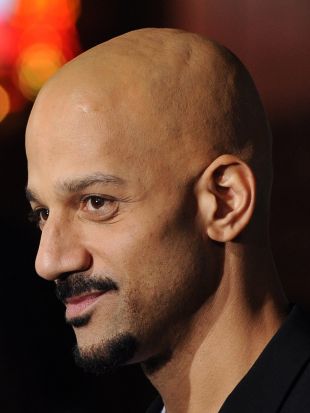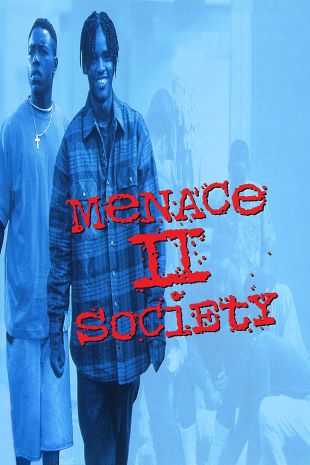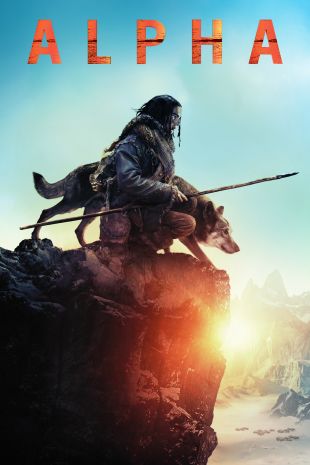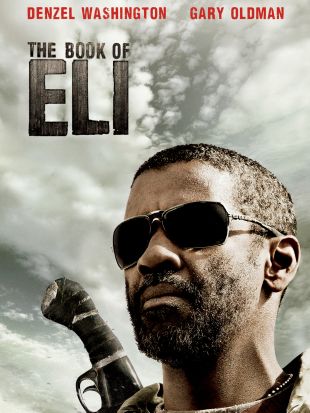Twin brothers Albert and Allen Hughes sold their first screenplay by the time they turned 19. They co-directed a studio-backed feature film, presented it at Cannes, and founded their own production and record company by age 21. Yet, more than simply wunderkinds, they follow in the tradition of their idols -- Sergio Leone, Martin Scorsese, and Brian De Palma -- by creating stylized genre flicks that are characterized by both startling violence and incisive social commentary.
The fraternal twins were born on April 1, 1972, in Detroit, MI, to an African-American father and an Armenian mother. Albert is nine minutes older than Allen. Their parents divorced when they were two, and they were raised by their mother, Aida Hughes. In 1981, she moved the family west to Pomona, CA, a suburb that is about an hour's drive from Hollywood. She worked at an In-N-Out Burger while taking care of the twins and putting herself through school. Three years later, she opened her own business, a vocational rehabilitation center for workers hurt on the job, and went on to become president of Pomona's chapter of the National Organization for Women.
When the boys turned 12, their mother lent them her company's video camera as a way to keep them out of trouble. Albert and Allen instantly took to the camera, bringing it straight to their bedroom where they turned their closet into a mock spaceship. Using a boom box to generate sound effects, they staged their first movie, a violent crash landing. For the next couple of years, the budding filmmakers spent all their free time making shorts. Editing at home on two VCRs, they re-created scenes from their favorite films, such as Enter the Dragon (1973) and Scarface (1983). They also made a documentary about the drug dealer who hustled crack cocaine outside their schoolyard.
During their freshman year of high school, Allen enrolled in a television production course. After filming the short "How to Be a Burglar" for a class assignment, the boys started showing their work on the local cable station. They dropped out of school a year later. Albert eventually took filmmaking classes at Los Angeles City College, and then one of their public access films, "The Drive By," snagged them an agent. The pair went on to direct high-profile music videos for Tupac Shakur, Tone-Loc, KRS-One, and Digital Underground.
While still teenagers, the twins conceived the idea for their first feature film, Menace II Society (1993), the story of a young African-American man's struggle to leave the Southern California projects. After writing an outline, they commissioned screenwriter Tyger Williams to draft the script, which was then picked up by New Line Cinema. Credited as the Hughes Brothers, they made their directing debut when Menace II Society premiered at the Cannes Film Festival. Starring relative unknowns Larenz Tate and Tyrin Turner, the film included standout supporting work from Jada Pinkett Smith, Samuel L. Jackson, and Charles Dutton. It grossed nearly ten times its three-million-dollar budget and earned its directors an Independent Spirit Award nomination for Best First Feature. Besides landing the Hughes Brothers a two-picture deal with Disney's Caravan Productions, Menace II Society's unprecedented success helped them establish their own production and record company, Underworld Entertainment. Made of two divisions, Underworld Productions and Underworld Records, the company produces the twins' films and soundtrack tie-ins, as well as represents rap and hip-hop recording artists.
The Hughes Brothers developed their sophomore directing effort, Dead Presidents (1995), from a short story they found in Bloods, a compilation of works about African-American Vietnam veterans. After commissioning Michael Henry Brown to write the screenplay, they drafted Menace II Society's Larenz Tate to star in the project, along with Bokeem Woodbine, Keith David, and Chris Tucker. However, Disney wrongly marketed Dead Presidents, which chronicled the difficulties black veterans encountered when they returned to the States, as a heist picture. It opened to mixed reviews and mediocre box-office returns, but its soundtrack (which the Hughes Brothers executive-produced) reached number one on the R&B chart and number 14 on the Billboard 200.
Disappointed by audiences' reaction to Dead Presidents, the Hughes Brothers took almost four years to choose their next project. They had initially set out to adapt Iceberg Slim's autobiography, Pimp: The Story of My Life, for the big screen, but decided instead to direct a feature-length documentary about hustlers, titled American Pimp (1999). Featuring subjects from across the United States, the film was nominated for the Grand Jury Prize at the Sundance Film Festival.
After producing Doug Pray's documentary on DJs, Scratch (2001), the Hughes Brothers returned to fiction filmmaking with From Hell (2001). Based on Alan Moore and Eddie Campbell's mammoth underground graphic novel of the same name, the film chronicled the hunt for the world's first documented serial killer, Jack the Ripper. Starring Johnny Depp, Heather Graham, and Ian Holm, the film's all-white cast and European setting were a distinct change for the directors. Yet its stylized look, heavy violence, and thoughtful narrative fit right into their growing oeuvre.
While working on their film career, the Hughes Brothers still occasionally direct music videos, especially those for songs featured on their soundtracks. They also garnered four Clio Awards for their public service announcements on gun control, "Stray Bullets" and "These Walls Have No Prejudice."



